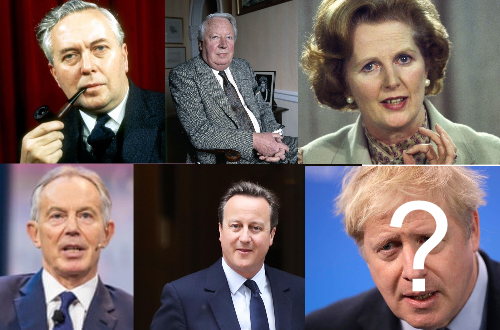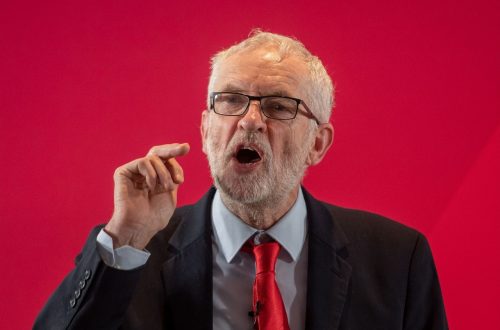A fascinating and broad-ranging piece by Christopher Caldwell in the FT this weekend looking at European attitudes towards the US.
Too often (especially if you read some of the right wing American blogs) it is assumed that hostility to America comes exclusively from the left of the political spectrum and that the ‘pro-American’ sentiment is to be found only on the right.
A brief glance at French politics shows that to be a nonsense of course – there is a long tradition of hostility to the US from the Gaullist right, while in Germany the centre-left SPD has always had a very strong pro-American tendency.
Caldwell notes the complexity of the picture and asks a Labour Party source for his opinion:
Dennis MacShane, Britain’s Labour minister for Europe, tells me that I shouldn’t overstate the shift in support. There were, he says, always important exceptions to the rule that America’s friends in Europe were on the right. De Gaulle called the United States the biggest threat to world peace as early as 1965, while in Britain, Labour’s support has been broader than the American right tends to remember.
“The roots of European social democracy are anti-communist,” says MacShane. “European social democracy has far more in common with American values, including the war on terrorism, than with any other ideology.” The European left should never feel embarrassed about siding with the US, provided the US is a progressive force, MacShane thinks. In the 1980s, they should have remarked (but mostly they didn’t) that Ronald Reagan was, by many measures, tougher on South Africa than Europeans were.
Today, he thinks they should be quicker (but they’re pretty slow) to embrace the sympathetic parts of George W. Bush’s agenda. “I look at Bush, who has rejoined Unesco, talked about legalising eight or nine million immigrants from Mexico, and massively increased help for HIV/Aids,” MacShane says. “This is not what we would call a hardline, right-wing agenda.”
More interesting still is the discussion of neo-conservatism in foreign policy and where its allies are to be found in Europe:
The issue now is: can the United States, and particularly the neo- conservatives who believe in the use of force to defend Western values, connect with like-minded people in Europe to create a new international alliance? Here is the first problem: in the United States, the neo-conservatives are on the right. In Europe, their natural home is, or has recently been, on the left.
In France, for example, the intellectuals most often associated with support for the war in Iraq were the filmmaker Romain Goupil, the philosopher Andre Glucksmann, Bernard Kouchner, a founder of Medecins sans Frontieres, and the novelist Pascal Bruckner.
Sitting outside a pub near Les Halles, Bruckner tells me he’s all for a “European neo-conservatism”. In his mind, this would mean a European army that would take aim at the weak links in the world’s totalitarian chain. He thinks it would have an advantage over its American variant, because Europeans – partly by virtue of the French and British colonial administrative traditions – have been more rooted in other cultures than the US has, and may have formed a better sense of how to respect local cultures, recognise the local power-elites and administer transition governments. Early on in the Iraq invasion, Bruckner was struck by how much more successful British troops had been in controlling Basra and the south of Iraq, compared to the Americans who were running the rest of it.
This brand of “neo-conservatism” is not an emulation of America’s; it may even reflect a distrust of it. Europe’s problem, as Bruckner sees it, is not that it has drifted too far to the left – for the left-right concept is one that he considers “totally discredited”. Nor is Europe’s problem simply anti-Americanism.
And there is another view from Britain in the piece which touches upon some of the issues discussed on this blog:
In Britain, Mark Leonard, director of the Blairite Foreign Policy Centre, says there is a new strain of Atlanticism which is “revolutionary rather than status-quo”. This new strain attracts a certain number of Conservatives – Leonard names the Times columnist, Michael Gove, and the MP Michael Portillo – who believe in “a neo-conservative idea of democracy”.
But he also recognises that the Atlanticist project has a great appeal to part of the left. “This is a left that thinks the American tiger can be ridden to promote human rights,” he says, “which is fine, except for two problems. The first is American nationalism – we’re not Americans. The second is an impatient belief on the left that to deal with big problems, we are going to have to develop a more multilateral way.” While Leonard thinks that certain Europeans are too obsessed with multilateralism – those who would not have attacked Serbia in 1999 without a UN mandate, for instance – he thinks the US is far too inclined to go it alone.
There is of course one other big problem with the label neo-conservative in its use in European politics – the economics. The US neo-cons are strongly associated with a Thatcherite free-market position, not the kind of politics that are going to win much support among European leftists.
So the neo-con label might not fit but certainly there are signs in a number of areas of Europe that a more radical approach to foreign policy could gain ground on the left.


